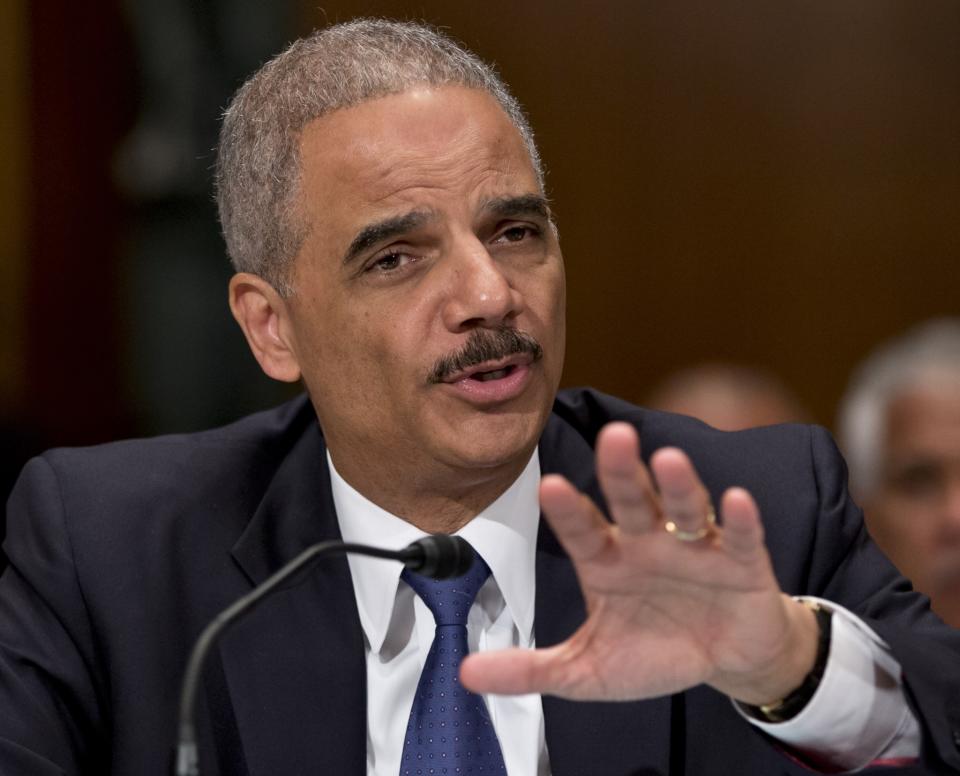Sessions vows to crack down on leakers — and sends a warning to reporters
WASHINGTON — Attorney General Jeff Sessions vowed Friday to crack down on what he called a “staggering” number of leaks of classified information since Trump took office. He promised to step up criminal investigations of suspected leakers, and to review department guidelines governing media subpoenas, raising the prospect of a renewed effort by federal prosecutors to compel reporters to reveal their confidential sources.
“We are taking a stand. This culture of leaking must stop,” Sessions said at a Justice Department press conference where he was accompanied by Director of National Intelligence Dan Coats and Deputy Attorney General Rod Rosenstein. While declining to discuss specific cases, he added: “It is important for the American people and those who might be thinking about leaking classified or sensitive information to know that criminals who would illegally use their access to sensitive information to endanger our national security are in fact being investigated and will be prosecuted.”
Sessions’ warning was immediately condemned by freedom of the press advocates. “It could mean a new wave of subpoenas, a new wave of court cases and it could spell trouble for the flow of information to the public,” said Bruce Brown, executive director of the Reporters Committee for Freedom of the Press.

The announcement comes after weeks of taunting by President Trump, most in the form of tweets, demanding that Sessions do more to end the leaks that have bedeviled his administration. It also comes the day after the Washington Post published one of the most high-profile leaks yet: transcripts of confidential phone calls President Trump had with the president of Mexico and the prime minister of Australia shortly after his inauguration.
Sessions said he “strongly agree[s] with the president” about leaks, and indicated his anti-leak crackdown has already begun: The number of criminal referrals to the Justice Department has “exploded” since the president took office, he said, and the number of active criminal investigations by the department has “more than tripled” compared to the number pending since the end of the last administration.
Sessions did not say how many active cases were pending but noted that the department has already brought charges against a former NSA contractor for leaking a document about Russian cyberattacks to the Intercept. That indictment was announced two months ago.
Sessions is hardly the first attorney general to try to crack down on leaks. During President Obama’s first term, the Justice Department under then Attorney General Eric Holder brought more leak prosecutions than any previous administration — although they began to dwindle after an uproar from First Amendment advocates when it was revealed that his department had secretly subpoenaed the phone records of Associated Press reporters in one investigation and identified a Fox News reporter as a potential “co-conspirator” in violating the Espionage Act in another.

That prompted Holder in 2015 to announce new media guidelines that require a high-level scrutiny of subpoenas to journalists. But Sessions said today those guidelines are now being reviewed — a move that some news organizations and press advocates fear could unleash a flood of new subpoenas to journalists to turn over records of their contacts with sources and to testify about them.
“That’s a reality that we have to prepare for,” said Jane Kirtley, professor of media ethics at the University of Minnesota School of Journalism and Mass Communications.
“We knew the Trump administration was going to take on the issue of leaking,” she added. The big question is how far the administration will go to force journalists to reveal their sources — and whether reporters themselves could be targeted for publishing classified information.
“We’ve never had a prosecution of journalists for being the recipient of leaks,” Kirtley said. “This could be the first time that happens.”
Sessions also vowed to devote more resources to leak investigations and to give them higher priority within his department. Meanwhile, Coats said the U.S. intelligence community would fully cooperate and join the effort. He offered this message to potential leakers: “If you improperly disclose classified information, we will find you, we will investigate you and you will prosecuted to the fullest extent of the law and you will not be happy with the result.”
_____
Read more from Yahoo News:
A Southern city struggles with the paradoxes of ‘school choice’
Senators vacate Washington, a president’s recriminations ringing in their ears
As a grand jury begins work, defiant Trump calls Russia investigation a ‘fabrication’
Murkowski, Collins reflect on bucking the GOP line on health care
Photos: ‘Just the Facts’ — Illuminating invisible lives at the 2017 LightField photo festival


